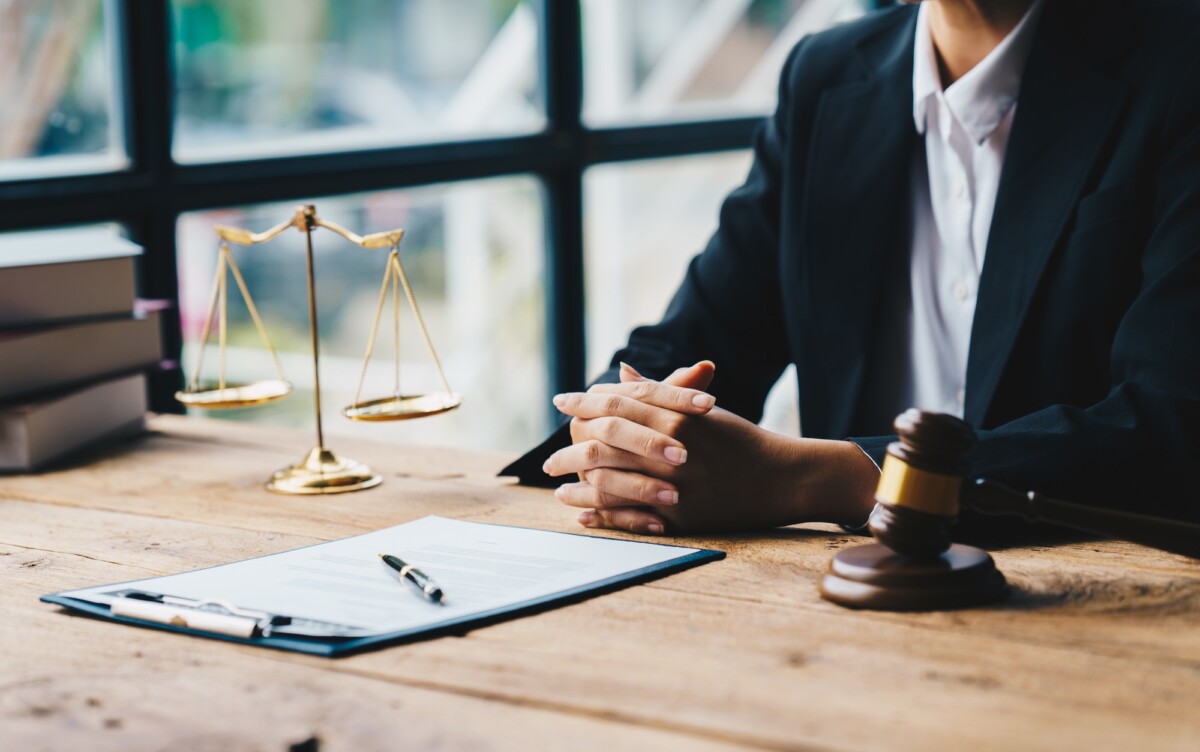What Is the Difference Between a Prosecutor and a Judge?
Ready to resolve your legal concerns? Get professional help now with personalized support, Or Call 833-349-4659 for immediate assistance.
Understanding the difference between a Prosecutor Vs Judge is crucial for anyone navigating the legal system. These two roles play distinct yet complementary parts in the courtroom, influencing the outcome of cases significantly. Knowing their responsibilities can help you understand how to find case details and the overall legal process.
A prosecutor is a legal representative of the government, responsible for presenting the case against an accused individual. They gather evidence, interview witnesses, and determine whether to file charges. Essentially, they advocate for justice, aiming to prove the defendant’s guilt beyond a reasonable doubt.
Key Responsibilities of a Prosecutor:
- Investigate cases: Collect evidence and build a strong case.
- File charges: Decide what charges to bring based on the evidence.
- Present evidence: Argue the case in court, aiming for a conviction.
The Role of a Judge
In contrast, a judge serves as an impartial arbiter in the courtroom. Their primary duty is to ensure that the trial proceeds fairly and according to the law. Judges make rulings on legal matters, oversee court procedures, and ultimately decide on the verdict in bench trials.
Key Responsibilities of a Judge:
- Maintain order: Ensure courtroom decorum and fairness.
- Rule on motions: Decide on legal requests made by both parties.
- Deliver verdicts: In bench trials, judges determine guilt or innocence.
In summary, while the prosecutor vs judge dynamic is essential in legal proceedings, understanding their distinct roles can clarify the complexities of a lawsuit. Whether you’re involved in a law suit or simply curious, knowing these differences enhances your legal literacy.
What Are the Key Responsibilities of a Prosecutor?
Understanding the difference between a prosecutor and a judge is crucial for anyone navigating the legal system. While both play significant roles in the courtroom, their responsibilities and functions are distinct. This section will delve into the key responsibilities of a prosecutor, shedding light on their vital role in the judicial process.
A prosecutor is primarily responsible for presenting the case against an individual accused of a crime. Their duties include:
- Investigating Cases: Prosecutors gather evidence, interview witnesses, and collaborate with law enforcement to build a strong case.
- Deciding Charges: They determine what charges to file based on the evidence available, which is a critical step in the legal process.
- Representing the State: In the prosecutor vs judge dynamic, the prosecutor represents the government, advocating for justice and public safety.
- Negotiating Plea Deals: Often, prosecutors negotiate with defense attorneys to reach plea agreements, which can expedite the legal process.
- Presenting Evidence in Court: During trials, prosecutors present evidence and argue the case before a judge and jury, aiming to prove the defendant’s guilt beyond a reasonable doubt.
Understanding these responsibilities can help individuals know how to find case details and navigate a lawsuit effectively.
How Does a Judge Influence Court Proceedings?
Understanding the roles of a prosecutor and a judge is crucial in navigating the legal system. While both are integral to court proceedings, their functions differ significantly. A prosecutor represents the state, bringing charges against defendants, while a judge oversees the courtroom, ensuring fair trials and interpreting the law. This distinction is vital for anyone involved in a lawsuit or seeking to understand legal processes.
A judge plays a pivotal role in shaping the outcome of court cases. Here are some key ways they influence proceedings:
- Maintaining Order: Judges ensure that courtroom decorum is upheld, allowing for a fair and respectful environment.
- Ruling on Evidence: They decide what evidence is admissible, impacting the strength of each side’s case.
- Guiding Legal Procedures: Judges interpret laws and procedures, helping both parties understand their rights and obligations.
- Delivering Verdicts: In bench trials, judges determine the outcome, whereas in jury trials, they guide jurors in their decision-making process.
Understanding the differences between a prosecutor and a judge can help you know how to find case details more effectively. Whether you’re involved in a law suit or lawsuit, recognizing these roles can clarify the legal landscape you’re navigating.
Prosecutor Vs Judge: Who Holds More Power in the Courtroom?
Understanding the roles of a prosecutor and a judge is crucial for anyone navigating the legal system. While both are integral to court proceedings, their functions and powers differ significantly. This distinction can impact the outcome of a case, making it essential to grasp the nuances between these two positions.
The Role of a Prosecutor
A prosecutor represents the government in criminal cases, responsible for presenting evidence against the accused. They decide whether to file charges and how to proceed with the case. Their goal is to ensure justice is served, but they also wield significant power in influencing the case’s direction.
The Role of a Judge
In contrast, a judge serves as an impartial arbiter in the courtroom. They oversee the legal proceedings, ensuring that laws are followed and that both parties receive a fair trial. Judges have the authority to make rulings on evidence and can even determine sentences in some cases.
Power Dynamics
- Prosecutor: Initiates cases and has discretion over charges.
- Judge: Maintains courtroom order and ensures fair trial standards.
While both roles are powerful, the prosecutor often holds more influence over the case’s initiation and strategy. Understanding these differences can help individuals know how to find case details and navigate a lawsuit effectively.
Ready to resolve your legal concerns? Get professional help now with personalized support, Or Call 833-349-4659 for immediate assistance.
The Legal Training and Background of Prosecutors and Judges
Understanding the distinction between a prosecutor and a judge is crucial for anyone navigating the legal system. Each role plays a vital part in the judicial process, influencing the outcome of cases and ensuring justice is served. Let’s delve into their legal training and backgrounds to clarify the differences.
Prosecutor’s Background
- Education: Typically, a prosecutor holds a law degree and has passed the bar exam. They often have experience in criminal law, which is essential for their role.
- Experience: Many prosecutors start as law clerks or work in public defense before moving into prosecution, gaining valuable courtroom experience.
Judge’s Background
- Education: Judges also possess a law degree and must pass the bar exam. However, they often have extensive legal experience, sometimes practicing law for many years before being appointed or elected.
- Judicial Training: Judges may undergo additional training focused on courtroom management and legal interpretation, which is crucial for their role in presiding over cases.
In summary, while both prosecutors and judges require a strong legal foundation, their paths diverge significantly. If you’re wondering how to find case details or whether it’s a law suit or lawsuit, understanding these roles can guide you in the right direction.
Read Also: How Can You Look Up Case Details Online? A Complete Guide
How the Prosecutor and Judge Collaborate in a Trial
Understanding the roles of a prosecutor and a judge is crucial in the legal system. While both are integral to a trial, their responsibilities differ significantly. The prosecutor represents the state, bringing charges against the defendant, while the judge oversees the courtroom proceedings, ensuring the law is upheld. This distinction is vital for anyone looking to understand how justice is served.
In a trial, the collaboration between the prosecutor and the judge is essential for a fair process. Here’s how they work together:
Roles in the Courtroom
- Prosecutor: Initiates the case, presents evidence, and argues for a conviction.
- Judge: Maintains order, rules on legal matters, and instructs the jury on the law.
Communication is Key
Effective communication between the prosecutor and judge helps streamline the trial. They discuss procedural issues, ensuring that both sides adhere to legal standards. This collaboration is crucial for upholding justice and protecting the rights of the accused.
Ultimately, understanding the prosecutor vs judge dynamic can enhance your knowledge of legal proceedings. If you’re interested in a specific case, knowing how to find case details can be beneficial. Whether it’s a law suit or lawsuit, grasping these roles helps demystify the judicial process and fosters a deeper appreciation for the legal system.
Discover How FormsByLawyers Can Help You Navigate Legal Processes
Understanding the difference between a prosecutor and a judge is crucial for anyone navigating the legal system. These two roles serve distinct functions in a courtroom, impacting the outcome of legal proceedings. Knowing their responsibilities can help you better comprehend how cases unfold, whether you’re involved in a lawsuit or simply seeking information.
The Role of a Prosecutor
A prosecutor represents the government in criminal cases. Their primary duty is to present evidence against the accused, aiming to prove guilt beyond a reasonable doubt. They decide whether to file charges and what charges to pursue, making them pivotal in the legal process.
The Role of a Judge
In contrast, a judge oversees court proceedings, ensuring that the law is applied fairly. They make rulings on legal matters, manage courtroom decorum, and ultimately decide the outcome of cases based on the evidence presented. Judges maintain impartiality, unlike prosecutors who advocate for the state. To find case details, you can utilize various online resources or contact local court offices.
Understanding whether you are dealing with a law suit or lawsuit is also essential, as the terminology can affect your approach to legal matters. At FormsByLawyers, we provide resources and guidance to help you navigate these complexities effectively.
Don’t let legal complexities hold you back. Start your free consultation here or call 833-349-4659 now.
You can also visit LegalCaseReview to find the best Lawyer.
FAQs
-
What is the difference between a prosecutor and a judge?
A prosecutor is a lawyer who represents the government in criminal cases, while a judge is a neutral party who oversees court proceedings and ensures fair trials. -
Who has more power, a prosecutor or a judge?
Both have different types of authority. A prosecutor decides which charges to file and argues cases, while a judge makes rulings, ensures legal procedures are followed, and delivers sentences. -
Can a prosecutor become a judge?
Yes, many judges start as prosecutors before being appointed or elected to the bench. -
Does a prosecutor work for the government?
Yes, prosecutors work for the local, state, or federal government and are responsible for bringing criminal cases against defendants. -
Is a prosecutor a type of lawyer?
Yes, a prosecutor is a lawyer who specializes in criminal law and represents the government in court.




